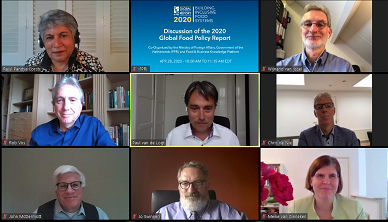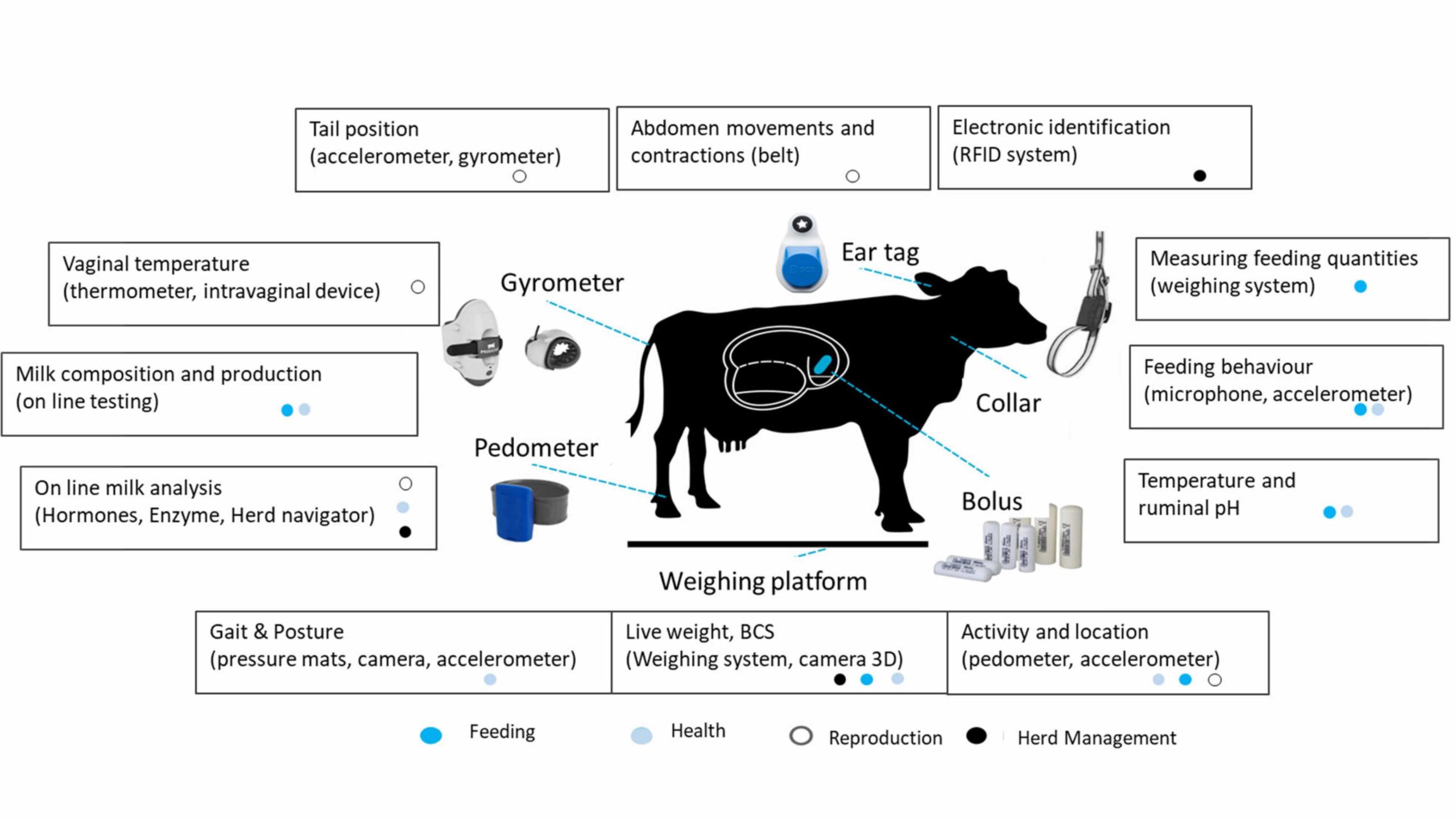IFPRI’s 2020 Global Food Policy Report (GFPR) was written before the outbreak of the global COVID-19 pandemic. Although the world has changed drastically since, the insights shared in the report are still valuable and an important source of knowledge to inform policies and actions currently developed and implemented. A virtual event was organized by the Netherlands Ministry of Foreign Affairs, the Food & Business Knowledge Platform, and IFPRI on April 28 to launch the report, present and discuss the outcomes and place them in light of the COVID-19 pandemic. As Paul van de Logt (Ministry of Foreign Affairs) remarked in his opening statement, “the world is suddenly in an uncertain situation with challenges that we have not faced before.”
The event started with three short IFPRI presentations on the need for more inclusive and sustainable food systems, as well as possibilities for addressing the impact of the COVID-19 pandemic. The presentations revealed how important the outcomes of the report are for the actions and programs being developed to reduce the impact of the pandemic on food systems.
Reverse thinking
John McDermott, director of the IFPRI-led CGIAR Research Program on Agriculture for Nutrition and Health (A4NH) highlighted the importance of reversing food system thinking by starting the thought process looking at the diets of the consumers. This focus on diets can help in looking at all forms of malnutrition, especially as the COVID-19 crisis emphasizes and magnifies the constraints in the food systems related to the food environment and consumer behavior. McDermott also mentioned two sources for additional information: the food system resource center and the food systems idea exchange.
IFPRI Director General Johan Swinnen focused in his presentation on the COVID-19 pandemic, explaining that the impact on food systems is multifold and will strongly differ between those food systems. In particular, food systems that depend heavily on manual labor and poor people will be signficantly affected due to lockdowns and other government measures and the resulting economic recession.
SNV CEO Meike van Ginneken reflected on the presentations with the message that it is important to “sow the seeds of future resilience,” especially now that the focus is most on the present. This implies that policy makers and organizations should not only focus on solving the current crisis, but should include the long-term vision of food systems to ensure their inclusiveness and resilience.
The third conclusion was highlighted in the presentation of Rob Vos, director of IFPRI’s Markets, Trade, and Institutions Division, who shed light on the need to be inclusive towards the so called “hidden middle”—the midstream of the value chain, including many small and medium enterprises (SMEs) such as traders, truckers, and processors. This group often escapes the attention of the policy makers, but is a key part of food systems. Perspectives should change to include this group in the short- and long-term development of policies and programs. Vos explained that support could be offered through provision of basic infrastructure, incentives and frameworks to increase standards for food quality, education to facilitate basic knowledge, and skill development for entrepreneurship and inclusive business models for smallholders. Both Wijnand van IJssel (Ministry of Foreign Affairs) and Chris de Nie (Ministry of Agriculture, Nature and Food Quality) agreed that the hidden middle plays a crucial part and is currently not analyzed enough and too often missed out on by policy makers.
Connectivity is the key
The presentations and discussion focused on the need to make connections across different levels of food systems. Swinnen emphasized the unequal effects of the COVID-19 pandemic and consequently that the need for inclusive food systems is now greater than ever. Inclusion has to be achieved at global policy levels but connected to actions which need to take place at national and subnational levels. Several policy actions were mentioned that could help reduce the impact of the crisis: Social protection “plus” programs, effective management of food reserves, information sharing and surveillance transparency, as well as the need avoid imposing restrictions on food trade.
During the Q&A, audience members asked about regional/domestic food production and international food trade. Presenters and discussants indicated that in principle there is no conflict of interest between these two systems. Both have increased in terms of consumption and trade over the past decade and could provide important trade channels for food and nutrition security. It is important to connect, strengthen, integrate and keep open existing trade channels, domestic and international, to ensure access to sustainable and healthy food.
Policy makers also need to keep learning from reports such as the GFPR in order to keep policy and development narratives updated with new insights. Van de Logt and van IJssel specifically mentioned the connections between the well-structured and country-based approaches in the report, as it helps to make the insights actionable. In addition, van Ginneken noted that policies should also be adaptive and smart, and should “get it right.” While the report presents a road map for policy makers, the knowledge and creativity of what others do, especially those at SMEs, should be connected to and influence actions taken at the policy levels.
From analysis to action
All participants recognized the need to act fast, yet stressed that organizations and policy makers should look at the future as well, to ensure that more inclusive and resilient food systems will be built. These efforts should include knowledge gathered at the global and national levels, as well as innovative and creative efforts by individuals. It is also imperative that programs and policies implemented now and in the long term remain adaptive and up-to-date as more knowledge becomes available. The Ministry of Foreign Affairs is committed, with its partners, to contribute to and support efforts to reduce the impact of the coronavirus pandemic. The knowledge shared in the GFPR and in this event will also feed into that effort. As in recent years, the Ministry of Foreign Affairs is committed to bring GFPR to the attention in the Netherlands in the years to come; once is an incident, twice is a trend, thrice is a tradition.
Mariëlle Karssenberg is a Knowledge Broker at the Food & Business Knowledge Platform. This post first appeared on the F&BKP blog.







